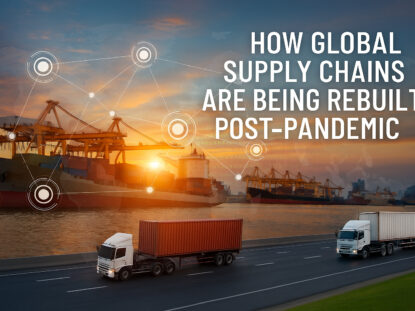Global trade has always been shaped by the ebb and flow of political power. From shifting alliances to changing leadership, political dynamics influence who trades with whom, under what conditions, and at what cost. In today’s interconnected world, trade is no longer just about economics — it’s a tool of diplomacy, influence, and competition. Political shifts can strengthen international partnerships or create ripple effects that reshape entire markets.
The Link Between Politics and Trade
Trade policies often reflect political priorities. When governments change, so do their approaches to tariffs, regulations, and international agreements. For example, a country that embraces protectionism may impose higher tariffs to safeguard domestic industries, while one favoring globalization may lower barriers to encourage cross-border commerce. Political ideologies — from nationalism to liberalism — directly affect the flow of goods, capital, and investment.
Power Transitions and Economic Realignments
Major political transitions often trigger trade realignments. The Brexit decision, for instance, redefined the United Kingdom’s economic relationships not just with the European Union but with the entire world. Similarly, the rise of emerging economies like China and India has shifted global trade power from West to East. These changes have led to the renegotiation of trade pacts, the creation of new regional blocs, and increased competition for global influence.
The Role of Sanctions and Diplomacy
Sanctions have become one of the most powerful political tools in international trade. Nations use them to pressure others without direct conflict — restricting access to key markets, technology, or financial systems. The ongoing geopolitical tensions involving Russia, Iran, and North Korea illustrate how trade restrictions can both isolate and destabilize economies. On the other hand, diplomatic trade agreements like the Comprehensive and Progressive Agreement for Trans-Pacific Partnership (CPTPP) and African Continental Free Trade Area (AfCFTA) demonstrate how cooperation can strengthen economies and promote regional stability.
Populism and Protectionism
In recent years, a wave of populist movements has challenged globalization, leading to calls for stronger local industries and tighter border controls. This protectionist approach has disrupted global supply chains, increased costs, and created uncertainty for multinational corporations. However, it has also sparked innovation in domestic production and encouraged nations to diversify their trade partnerships, reducing overdependence on a few markets.
Technology, Politics, and the Future of Trade
Digital transformation is adding a new dimension to global trade politics. Nations are now competing in areas like data governance, semiconductor manufacturing, and green technology. Political decisions around technology regulation, cybersecurity, and sustainability standards will determine future trade routes and alliances. As countries balance competition with cooperation, the next era of trade will be shaped by digital diplomacy and climate-driven economics.
Conclusion
Political shifts have always influenced global trade, but today’s changes are faster and more interconnected than ever before. From new alliances to digital economies, the balance of power continues to evolve. Understanding these dynamics is crucial for businesses and policymakers alike — because in global trade, every political decision can alter the map of opportunity and influence.






